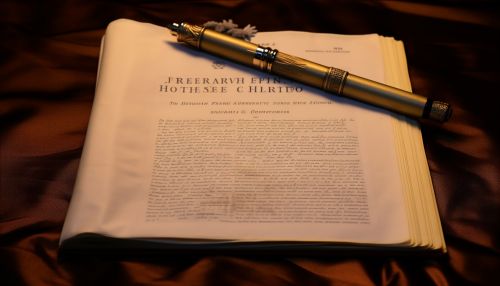Universal Declaration of Human Rights
Introduction
The Universal Declaration of Human Rights (UDHR) is a milestone document in the history of human rights. Drafted by representatives with different legal and cultural backgrounds from all regions of the world, the Declaration was proclaimed by the United Nations General Assembly in Paris on 10 December 1948 as a common standard of achievements for all peoples and all nations.
Background
The idea of human rights emerged during the period of Enlightenment, but the concept as we understand it today was only developed in the aftermath of World War II. The atrocities committed during the war led to a global consensus on the need to protect individual rights regardless of nationality, race, religion, or political belief. This consensus was formalized in the Universal Declaration of Human Rights.
Drafting Process
The drafting process of the UDHR was a complex and multi-faceted endeavor, involving representatives from a variety of cultural, legal, and philosophical backgrounds. The drafting committee was chaired by Eleanor Roosevelt, the widow of American President Franklin D. Roosevelt. Other notable members of the committee included Charles Malik of Lebanon, Peng Chun Chang of China, and René Cassin of France.
Content of the Declaration
The Declaration consists of a preamble and thirty articles. The preamble sets out the broad philosophical basis for the concept of human rights, while the articles detail specific rights that all individuals should enjoy. These include civil and political rights, such as the right to life, liberty, and security of person; freedom of thought, conscience, and religion; and economic, social and cultural rights, such as the right to work in just and favorable conditions, and the right to education.
Impact and Legacy
The UDHR has had a profound impact on the development of international law and human rights norms. It has been incorporated into or influenced many national constitutions and has formed the basis for a wide range of international treaties and declarations. Despite its non-binding nature, the UDHR carries significant moral weight and is widely regarded as the foundational document of modern human rights law.
Criticism and Controversy
Despite its universal acceptance, the UDHR has been subject to criticism and controversy. Some critics argue that the Declaration reflects a Western-centric worldview, while others contend that it fails to adequately address economic and social rights. Nevertheless, the UDHR remains a powerful symbol of the global commitment to the protection and promotion of human rights.
See Also
- International Covenant on Civil and Political Rights
- International Covenant on Economic, Social and Cultural Rights
- Universalism and Cultural Relativism in Human Rights


